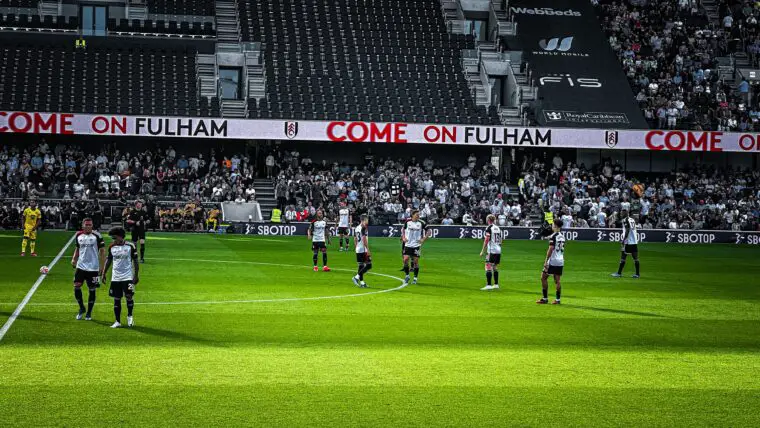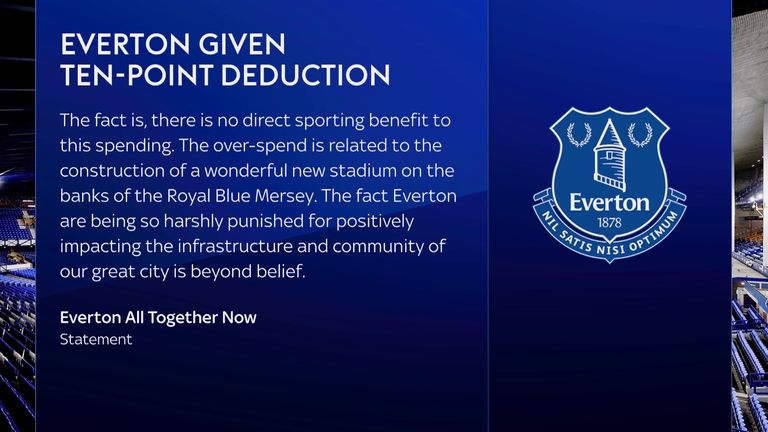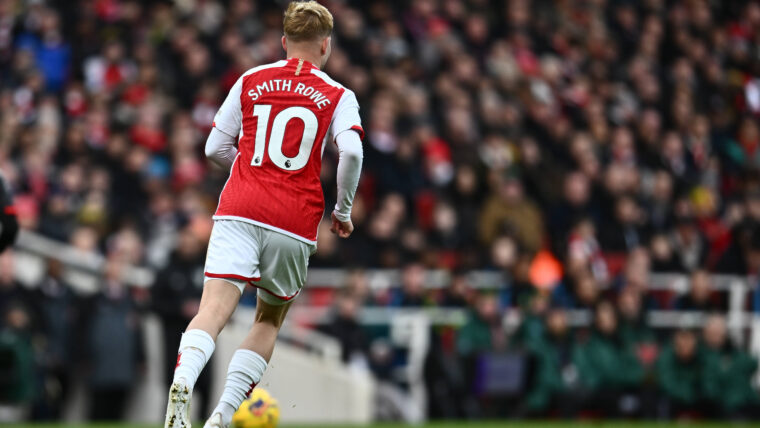Why Everton’s points deduction should act as a warning to Fulham
Written by Alex Mackenzie on 23rd November 2023

As I went for my usual morning stroll the other day, I tuned into a podcast that I was particularly excited about. The international break has made for some quieter content across footballing podcasts, but The Rest Is Football is one of the many I subscribe to, and when I saw Steve Parish was involved in this episode, I was excited to hear what he had to say.
I have watched the documentary on Amazon, When Eagles Dare, I’d even worked in the old Crystal Palace office building in Soho. The documentary showcases what a well-organised club it is, and how well the team has done to be competitive in the top flight across the last decade. It definitely serves as something Fulham can aspire to.
Steve Parish is a rare success story of football club ownership in the modern day. Crystal Palace don’t have financial muscle, but they operate shrewdly. So much so that Apple TV based the fictional club at the heart of it’s award-winning TV series Ted Lasso, on it.
FFP and the headline rule
I implore all football fans to give this episode a listen. Parish regularly mentions the everyday complexities involved in running a club, and it’s interesting to hear his views on FFP just a week before Everton were handed their 10-point deduction. Which has caused a stir for football fans across the country.

Steve says (and I’m paraphrasing) that most of the clubs comply with the rules, making FFP, broadly speaking, a good thing. And that a club should naturally aim not to lose money on the footballing side of the business, which is related specifically to the football teams a club has in its portfolio (first team, academy sides, etc). This parameter captures (roughly) ticket revenue, TV money, advertising, merchandising, disposal of assets performance-related rewards (cup run and league revenue), and revenue from transfers.
Parish clearly states the rules of the rolling test. A club cannot record losses of more than £105m in footballing revenue across three financial years. Steve then argues that the rolling nature of this test makes it more effective, in that a team could lose £105m in one financial year and aim to make it back across the following two. While the rules as they stand make it hard for clubs to break into the upper echelons of the Premier League, they apply to every club equally and allow for a degree of flexibility.
The rules and their impact
Manchester City are one club that has broken into the upper echelons – while Spurs and Newcastle may yet break through too. The charges levelled at Man City are different to the case against Everton. City breaching the footballing losses rule isn’t disputed; they make money from their footballing exploits. They are however, being charged with another breach which relates to dubious inflations of wealth based on the financial assistance that comes from the main financial sponsor of the club. This could be deemed unlawful if they have made losses that breach the £105m rule once you discount the sponsor’s financial support. Deductions and/or transfer embargoes could be put in place. But that brief description is reducing the features of a multi-layered case, as there are literally 115 charges against Manchester City.
It really puts it all into perspective for a lot of fans who are now starting to see the impact of falling foul of FFP. While there’s an argument that Everton’s sanctions are excessive, the rules are very clear. And Everton have admitted that they spent over the limit on the footballing side in court.
Parish explains an important note to fans very well in this episode. “If you walk into a kitchen at a restaurant and you ask them if they think you could do their job as a chef, you’d probably get a chorus of ‘no’s – but if you walk into a restaurant and ask the chef if he could run a football club, they would be much more likely to say yes”. That is to say, we all think we could do it. But truthfully, fans do not know about the impact of the rules on the financial side of the business, because the visibility for operating accounts isn’t clear compared to the annually filed accounts made available each summer.
Fulham operating to stay in the black
Our demands as fans for a better team and more success on the pitch mean the club is under pressure to spend more money on the footballing side of the business, such as on players. But the club may be struggling to keep the footballing revenue up in line with spend, with the delays of the new stand and a declining performance based on this season.
So while we should have tried harder to keep Mitrovic this summer, the windfall we received becomes part of an almost impossible trade-off made to ensure the club stays within the boundaries. Parish highlights the need to find new ways to generate “non-media revenue”, that is revenue that’s aside from that generated by the multi-million TV rights deals, and while it’s widely acknowledged that ticket revenue pales in comparison to TV revenue in its impact to a club, the board can point to this never-ending mission to balance of the books as a reason for hiking prices. The sad reality is that the fans (across every club) are always asked to fork out more to make sure the club don’t breach the rules.

Remember when Fulham lost £94m in a single year. That was all on a huge gamble on getting back into the top flight. Had Fulham not done that, FFP sanctions would have come for Fulham without a shadow of a doubt. Last season’s promotion and subsequent 10th place finish, plus the selling of Mitrovic, would have helped put an end to cumulative years of losses. Had it all gone pear-shaped last season we would be facing a slide down the divisions and suddenly we’re looking at a different story altogether.
When it comes to managing a football club, both on the field and off it, people in the higher positions at are forced to make difficult decisions all the time, and those decisions are nuanced. This is the word that Steve Parish uses most frequently in the podcast, and it makes sense; not all decisions in football are black and white, and trade-offs are made constantly.
A warning
In the light of Everton’s points deduction, the important thing to remember is that Fulham are not in Everton’s position, but it’s also important to remember that these rules are now 10 years old. Bad management of finances like the Everton example of spending excessively, generating risk for a team that doesn’t then generate a return on investment, can lead to real consequences. A rolling test of three years losses equating over £105m has taken time to impact, and we’re at the inflection point of that now. The sample size has just been too small thus far to truly see results.
It’s too early to say that Everton are relegated, because there’s still time for them to stay afloat – and to appeal. But it will take a lot to bounce back from. Fulham will look on and take note: Everton are being made an example of, and the consequences are so severe. Staying on the right side of the rules will now become even more of a priority.




